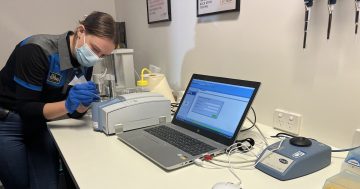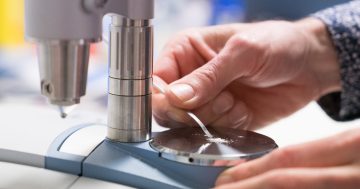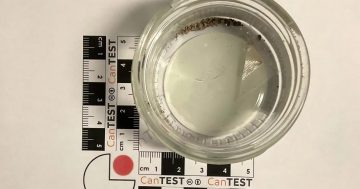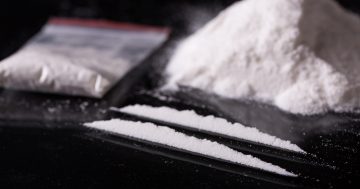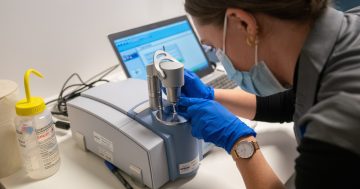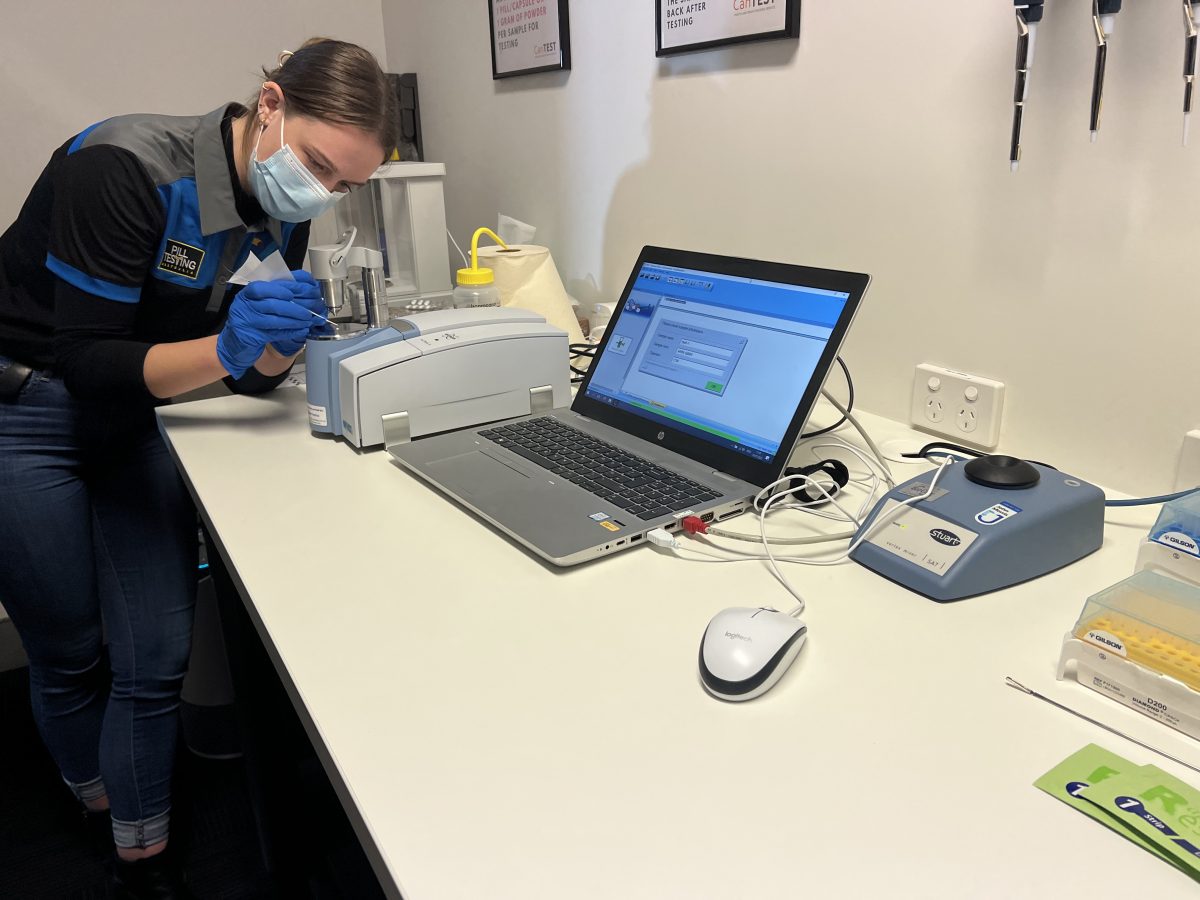
Chemical analyst Cassidy Whitefield shows how drugs are tested at the country’s first fixed pill testing site. Photo: Lottie Twyford.
Almost 400 drugs have been taken in for testing at the country’s first fixed pill testing site, which has now been operating in Civic for four months.
In the last month, 13 of 139 samples taken for testing were voluntarily discarded by people who received their test results.
The Moore Street clinic, operated by Directions Health Service, Canberra Alliance for Harm Minimisation and Advocacy, Pill Testing Australia and ACT Health, has been increasing in popularity the longer it has remained open.
A total of 58 samples were presented in the first month, 98 in the second, 76 in the third and 139 last month.

CAHMA executive director Chris Gough said trust in the testing facilities was important. Photo: Mitch Lamb.
Executive director of CAHMA Chris Gough said that increase in substances brought in for testing showed people were increasingly trusting the service.
This month, the team tested common substances like cocaine, ketamine, MDMA and methamphetamine.
Ketamine was expected in 23 samples and detected in 14, with purities ranging from 31 to 70 per cent.
Of those samples where ketamine wasn’t found, the following substances were: cocaine, dipentylone (a synthetic substance often sold as MDMA) and more of the 2′-fluoro-2-oxo-PCE (2F-NENDCK), which was first detected earlier this year at CanTest, as well as procaine (commonly used as an anesthetic in dental procedures).
Heroin was expected and detected in one sample with a 58 per cent purity.
MDMA was expected in 43 samples and detected in 34. No pills presented as MDMA actually contained it.
The purity of capsules, crystalline and powder ranged from less than 5 per cent to 84 per cent.
Other substances detected in these samples included MDA, caffeine, dipentylone and dextromethorphan (often used as a cough suppressant).
Cocaine was found in 11 of the 19 samples it was expected in, with purities ranging from less than 5 per cent to 43 per cent.
These samples also included substances like benzococaine (a local anesthetic commonly used in cough drops), boric acid (a naturally occurring substance used as an antiseptic), glutamine (amino acid), urea (used in fertiliser), lignocaine (local anaesthetic) and dipentylone.
Steroids called metandienone and trenbolone enanthate were also detected this month.
A couple of unknown samples presented for testing turned out to be MDMA, cocaine and lactose.
The impacts of the extended opening hours for the Spilt Milk music festival will be recorded in next month’s report.
The trial has been underway for six months, and the government has promised police will not target people for drug possession if they are in the area.
It’s also a free, confidential service and proof of identity is not required.
Drug decriminalisation laws passed the ACT Legislative Assembly earlier this year.
Those will come into effect next year and will decriminalise the possession of small amounts of substances like ice, heroin and cocaine.
Police have agreed to work with the government on these matters but are concerned about drug driving and dealing.
The ACT Government also continues to work on the establishment of a safe injecting room. This long-promised facility is still without a firm timeframe for delivery.
Drug reform advocates have urged the government to move on with this, especially as the fentanyl epidemic continues to lead to deaths overseas.
Only this week, the United States Drug Enforcement Administration (DEA) said it had this year seized enough fentanyl to kill every American.
Fentanyl, a manufactured opiate, has yet to be discovered at Canberra’s pill testing site.












